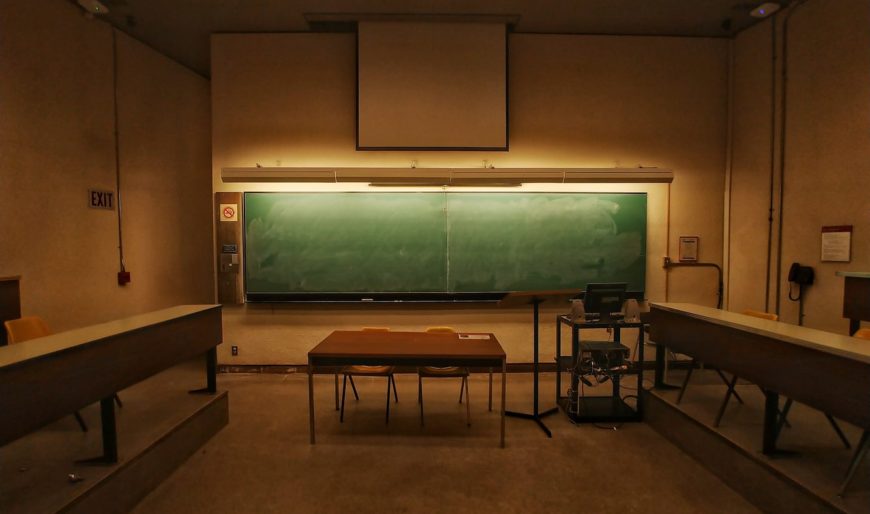Hinds dangles bonuses in bid to tackle teacher shortfall
Education Secretary Damian Hinds has promised extra pay to new teachers in a bid to turn the tide on schools' recruitment and retention crisis.

One in ten secondary school teachers left the profession last year and the government has now missed its recruitment targets for five years in a row.
A new government strategy revealed yesterday (28 January 2019) promises new teachers an extra £5,000 after their third year and another £5,000 at the end of their fifth year of teaching.
New teachers will also benefit from a new Early Career Framework, providing them with training, support and a reduced timetable for the first two years of their career.
To encourage recruitment, a new one-step process for applying to the profession will be rolled out; and the government promised support to help schools provide flexible work opportunities for teaching staff, including through a new “match-making service” for those who wish to job-share.
Hinds admitted that “teachers work too many hours” – finally acknowledging the driving issue behind the recruitment and retention crisis, and one highlighted by education unions for years.
To reduce workloads, he promised to remove “unnecessary tasks” from teachers, such as excessive data entry; simplify the inspection and intervention system and make it more supportive; and make staff workload a new focus of Ofsted inspections.
New opportunities for progression will also be offered to teachers who wish to stay in the classroom instead of taking on leadership roles, including the development of specialist qualifications.
More deprived areas were promised help through the provision of incentives for teachers to work in schools facing more challenges.
Hinds vowed that his new strategy would build on the government’s recruitment target of 30,000 teachers per year.
The National Education Union (NEU) welcomed the government’s support, but warned that the plan is too little too late.
Kevin Courtney, Joint General Secretary of the union, told the Guardian: “The government is facing a huge crisis in teacher recruitment and retention. They’ve started listening on some things, and we’re pleased about that, but there is a whole lot more to do.”
Joint NEU General Secretary, Mary Bousted, explained: “Despite lots of interesting initiatives, the strategy will not be a game-changer for the major problems of excessive and unnecessary workload, diminishing pay levels, and a punitive and unreliable accountability system.”
She pointed out the government “was long in denial” about the crisis in the education sector, despite her union’s pleas for support, and urged Hinds to take this opportunity to make serious reforms. She particularly levelled criticism at elements in his strategy that put even more weight on Ofsted grading.
“Let’s be clear – Ofsted’s inspections regime is a cause of unmanageable workload, not a solution,” she said.
“Teachers don’t just work long hours but feel under pressure to do work that serves the accountability process first, when what they want, and their pupils need, is a total focus on teaching and learning.”
Without reducing teachers’ mountainous workloads, job share schemes are set to fail, she warned.
“Teachers should be able to take advantage of the benefits of flexible working but job sharing only works if the job itself is not bursting at the seams,” Mary explained.
“Until government gets teacher and leader workloads under control we still risk seeing professionals feeling forced into Monday to Wednesday hours so they can finish the job unpaid on Thursday and Friday, in order to be able to enjoy a weekend with their families.”
She further called on the government to commit to fair pay for teachers, whose real wages have been in decline for years. One-off bonuses like those dangled by the Secretary of State are inadequate.
“Teachers’ pay is too low and needs to be increased across the board, as the School Teachers’ Review Body recognised last year. Limited interventions and supplements will be inadequate, temporary in effect and probably just prompt shortages elsewhere,” Mary said.
The NEU yesterday joined forces with the National Association for Head Teachers, the Association of School and College Leaders and fellow education union Voice to call on the government to implement a 5% increase in pay for teachers, to drag their salaries out of the real wage deficit.
The Institute of Employment Rights recommends in our influential Manifesto for Labour Law that crises such as that in the education sector are best solved through joint working between employers, workers and the government. We recommend that sectoral collective bargaining is reinstated across the economy so that all parties can come together to agree a way forward that is both fair for workers and strengthens industries and public services.




